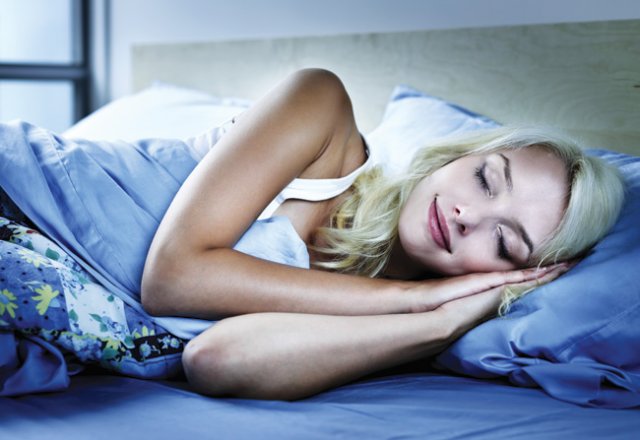
Why sleep is the third pillar of health

It is fundamental to our physical, mental and emotional health
Is sleep the most underrated beauty product? We chat with Dr Carmel Harrington about the benefits of getting a good night's sleep.
Carmel has been working in the world of sleep for nearly 20 years. She has a PhD in Sleep Medicine from Sydney University, is an honorary research fellow at the Children’s Hospital Westmead and consults internationally to companies and educational institutions on sleep health.
She is passionate about the fundamental role sleep plays in our ongoing happiness and wellbeing and has written two books on the topic – The Sleep Diet and The Complete Guide to a Good Night’s Sleep. She chats to TIANNA NADALIN about why sleep is the third pillar of health.
How are our busy lives affecting our sleep patterns?
It all comes down to this wonderful hormone called melatonin, which comes out at sunset and disappears in sunlight. Our eyes detect fading light and that feeds back to a part of the brain that produces melatonin. The major problem with people who work up until two minutes before they go to bed is that they haven’t set themselves up for sleep. Our eyes can’t tell the difference between sunlight and artificial light, so if you’re watching TV or staring at a computer all evening, your eyes aren’t exposed to the natural rhythm of the day. That means your body won’t start producing melatonin, which is essential for sleep.
How does sleep deprivation affect our hormones?
Sleep deprivation throws out the balance of ghrelin and leptin in the body, which means you will have increased levels of ghrelin (the hormone that makes you feel hungry) and a decrease in leptin (the hormone that makes you feel full). This means it takes more calories to make you feel satiated. A recent study showed that people who slept less than five hours a night ate 350 to 500 calories more than people who received adequate sleep.
Hidden effects of sleep deprivation?
Sleep affects how we view ourselves and how we view the world around us as well. There is new research emerging on how sleep deprivation affects not only on our memory, but also what we remember. A recent study of more than 7500 people showed participants a series of positive, neutral and negative images. People who had slept poorly had less retention overall than those who slept well, but what was most interesting was the type of memory loss. Those in the sleep-deprived group didn’t remember the positive or neutral images very well, but maintained memory with the negative.
If you’re living in the bush and eat something that makes you sick, you have to remember that feeling so you don’t eat it again – it’s a survival mechanism. When you are poorly slept, you tend to have an overly negative view of the world – and yourself.
Is sleep the most underrated beauty product?
Beauty, or attractiveness, is not just how you look, it’s about your vim and vigour – sparkling eyes, bright skin, gentle manner and nice demeanour. A good night’s sleep allows you to have all of those. Sleep also gives your body time to restore and repair, which helps you feel, and look, beautiful from the inside out. Plus, we feel great after it.
How much sleep do we actually need, then?
A massive study by the American Sleep Foundation found that as adults we need between seven to nine hours of sleep a night; some people will need up to 10 and others might be able to deal with six. And the majority of us sleep best between the hours of 10 and six, give or take an hour.
What is one thing you’d like to change through your work?
Exercise and nutrition are commonly referred to as the two pillars of health. I’d like people to recognise that sleep is the third pillar, and it is fundamental to our physical, mental and emotional health.
NEXT: Skin cell generation 'doubles at night'>>


